
The Business of Fashion
Agenda-setting intelligence, analysis and advice for the global fashion community.

Agenda-setting intelligence, analysis and advice for the global fashion community.
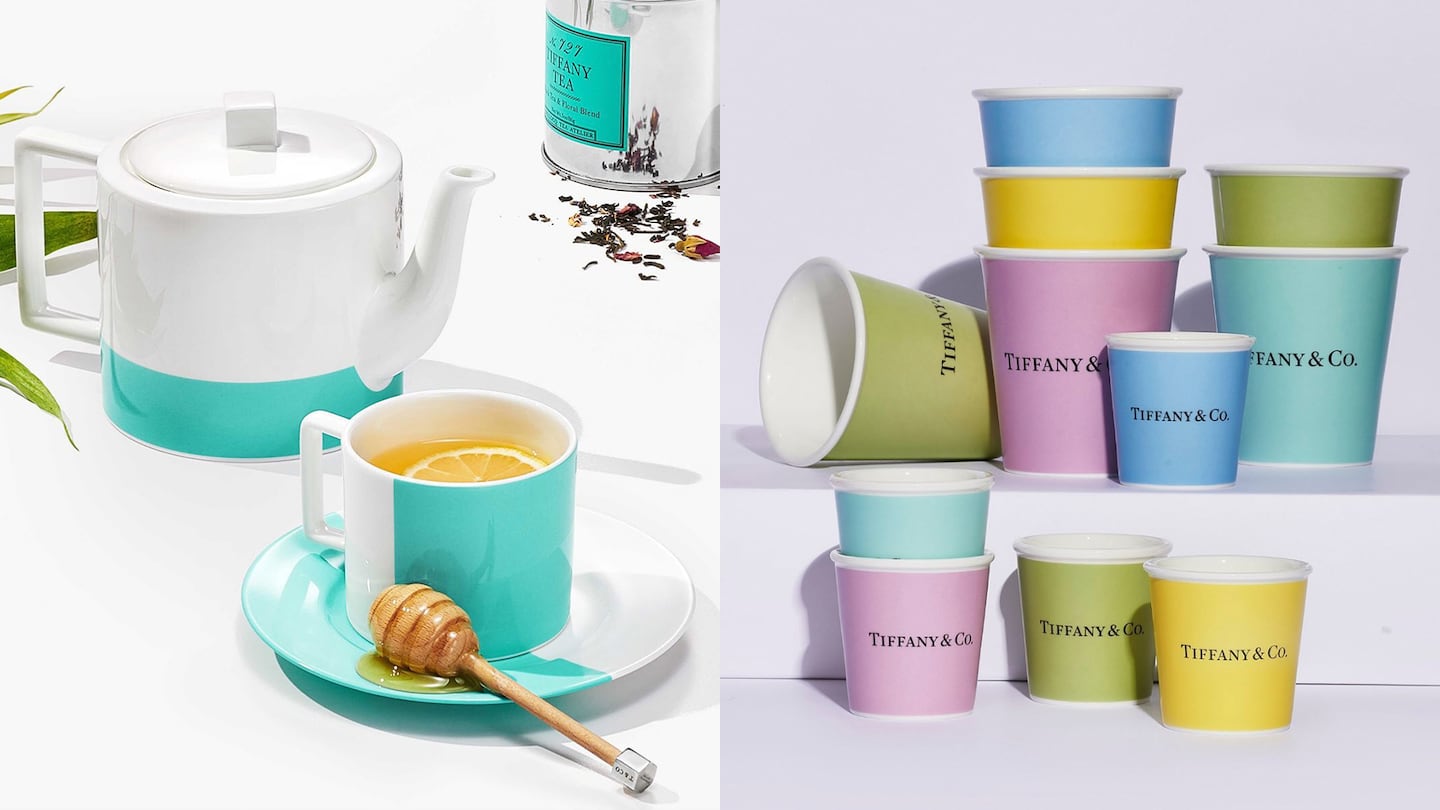
When Tiffany & Co.’s Blue Box Cafe opened in Shanghai in 2019, local media reported there was a six-month waiting list, as would-be customers jockeyed for their spot inside. In carefully choreographed photographs across social media captioned “Breakfast at Tiffany’s,” smiling influencers and fans posed with robin-egg-blue cocktails and patisserie in the form of jewellery boxes.
“For Tiffany, Blue Box was intrinsically linked to the iconography of the brand, connecting it to the cult of the film,” said Rebecca Robins, global chief learning and culture officer at consultancy Interbrand.
Branded hospitality experiences can be a powerful way to make memories that fashion and jewellery brands later harness to motivate customers to purchase product. And when that experience is unexpectedly anchored in the sense of taste, it is even more memorable since those brands are better known for tickling other senses — namely the visual and the tactile.
“This is luxury F&B (food and beverage) as ritual, where customers become part of the reinterpretation of the brand’s storytelling [and its] fascinating relationship with culture,” Robins added.
ADVERTISEMENT
In recent years, luxury brands have turned to F&B retail to boost their presence in various overseas markets, arguably more to encourage foot traffic to their core offering than to create lucrative new revenue streams in their own right. But some markets seem to buy into the concept more readily than others.
If it is a market with a rich culinary heritage and mass eating-out culture where foreign food is a rapidly-growing segment — like China — then the proposition can be particularly attractive.
Through their eateries, luxury brands export seemingly exotic heritage through French, Italian or British styles of dining, prominent chefs and associated aesthetics. Many are a continuation of a brand’s existing physical stores, which are often imbibed with a similar cultural cache or intended to invoke an emotional experience.
Celine’s use of granite and terrazzo materials and fresh plants in Hong Kong’s Times Square, for example, draws to mind the architectural references of an upmarket Parisian shopping experience.
The allure of exclusivity is another important driver. When patrons in China sip coffee topped with Vivienne Westwood’s emblem or eat from plates edged with the words ‘Burberry London’, the image they project on social media, as they are surrounded by brand signifiers at the brands’ respective cafes in Shanghai and Shenzhen, is of a bon viveur living a cosmopolitan life.
But what makes brand managers excited is that the subtext of these scenes suggests there are fans and clients who are passionate enough to — quite literally — eat, drink and breathe the brand.
No wonder some luxury brand marketers saw F&B as a goldmine and persuaded executives to invest in the idea despite the myriad unknowns in an unfamiliar sector.
The arrival of the Covid-19 pandemic, however, has complicated this proposition as restaurants were typically among the first establishments to close and last to reopen in lockdowns. Even now, the threat of strict restrictions remains central to Beijing’s zero-Covid strategy.
ADVERTISEMENT
According to Remi Blanchard, a research project leader of Shanghai-based Daxue Consulting, expanding into the F&B category in China had placed brands in a “fragile position at the mercy of possible lockdowns”.
However, if such eateries are a long-term play rather than a flash-in-the-pan, they demonstrate “a real will for luxury brands to redefine the relationship they have had with their customers so far, seeking to provide a more comprehensive lifestyle to their younger customers so as to generate new sources of revenue and multiply the touch points with them,” he added.
China is considered something of a kingmaker for luxury brands, but since the pandemic and the government’s pursuit of strict containment policies, its reliability has been somewhat dented, with some brands reporting flagging sales earlier this year, despite aggressive marketing strategies, collaborations and diversification efforts.
Yet even now, with pandemic controls that show no immediate signs of abating, the trend continues to be part of a growing number of brands’ China playbooks.
In April in Chengdu, Cartier reopened its flagship store, complete with a locally inspired separate tea house. Then, in June, Ralph Lauren opened Ralph’s Bar in the same city, following its opening of a location of Ralph’s Coffee in Beijing last year. One of the buzzier openings was Maison Margiela’s café, which also bowed in June in Chengdu’s Taikoo Li, in an area adjacent to store area of the brand’s flagship.
Aside from Covid-related challenges, expanding into F&B introduces a potential reputation risk for luxury brands as they are usually reliant on other stakeholders to execute their vision.
“Expanding to F&B requires brands to find the right partner to advise them or operate their cafes,” Blanchard explained, noting that businesses in the F&B category face “significantly different and more strict regulations” across areas including hygiene and supply chains. These are “usually outside of traditional luxury brands’ expertise.”
“Although customers know this category is not the core expertise of the brand, they still expect the brand to provide an experience that is up to luxury standards of quality. Any gap between the customer’s expectation and the actual experience in a cafe will impact the brand image as a whole,” Blanchard added.
ADVERTISEMENT
For brands to succeed, it is critical they select the right partners and thoroughly vet would-be franchisees whether they open in China or elsewhere.
In Japan, for example, luxury brands that launched eateries or drinking dens often hitched their wagon to revered restauranteurs, such as Gucci Osteria in Tokyo, which was opened under the watchful eye of Massimo Bottura, or Louis Vuitton’s Le Cafe V in the same city, which opened in partnership with leading Japanese chef Yosuke Suga.
For many players, the opportunity to foster valuable brand experiences and broaden their potential customer base seems to be worth the gamble.
Pippa Stephens, an apparel analyst at GlobalData says F&B businesses allow luxury players to introduce their brands to customers who wouldn’t usually visit their traditional stores.
More broadly speaking, “it also enables [brands] to capitalise on the shift in spend towards experiences which has occurred since the pandemic, with consumers now placing greater focus on social activities after being forced to stay at home during the lockdowns,” she says.
Though harsh restrictions have dragged on in China much longer than most markets, Beijing’s policies will have created a lot of pent-up demand for such experiences when restrictions are eventually lifted or loosened.
If the government’s upcoming 20th Party Congress, which is set to begin on Oct. 16, does end up being the watershed moment that sparks President Xi Jinping to gradually start loosening restrictions — as some analysts have posited — then in-demand restaurants could be in for a big rush of custom.
Stephens advises brands making their first foray in F&B to consider starting with temporary establishments which will enable them to “make sure their plan has sufficient appeal before making a permanent commitment.”
“Pop-ups also help to create more excitement about the brand,” Stephens adds.
Luxury brands have taken this approach to China in the past: a notable example being Coco Cafe, from Chanel, was open in Shanghai in 2017 for just 12 days, earning the brand extensive media coverage. Others have focused on pop-up cafés too, like Lanvin at the Sanya Atlantis Resort on Hainan Island and Boucheron in Shanghai.
Competition is heating up. Brands entering F&B in China would be wise to look at case studies in other international markets as the trend, which is often rooted in brands’ home cities in Europe and the US (Tiffany has a Blue Box Cafe in New York), is increasingly popular in Asia with outposts mushrooming across the region.
Japan, with its well-developed coffee culture and long history of brand collaboration, has proved a popular choice. In Tokyo, Bulgari, Tiffany, Chanel, Ralph Lauren, Dior, all boast an F&B presence.
Last year, following the opening Louis Vuitton’s first-ever cafe and restaurant in Osaka, the brand opened a second cafe, Le Café V, inside its seven-storey Ginza flagship store.
In South Korea, this year Swiss watchmaker Breitling opened its first ever restaurant, Breitling Kitchen, in Seoul, while Gucci is reportedly eying the market for a fine dining restaurant.
Outside the luxury segment, Arket’s cafe in Seoul is integrated into its homewares section, blurring the line between lingering in the space and shopping, while close by, down a narrow walkway, edged with bamboo, Cafe Kitsune sits in a stand-alone two-story house, giving the air of a small independent boutique.
Brands are tapping the Middle East too and it’s not just the big players active in the hotel sector like Armani and Bulgari that are opening cafes in cities like Dubai. Those leaning on the novelty factor should ensure it is on brand. In 2020, Ralph Lauren launched a pop-up on wheels using Ralph’s Coffee truck in Doha, Qatar, a move which other players might not get away with as easily.
Though each market in the region has its unique culture of hospitality and cuisine trends that will require a customised approach to F&B establishments, there will be some lessons that apply back to the China market — even if it is what not to do.
Regardless of the many risks that F&B poses, the strategy will remain attractive for many luxury brands as they look for more ways to create IRL (in real life) experiences fostering deep, lifelong connections, especially at a time when technology takes a stronger hold on marketing and business development.
Ultimately, “this is still all about brand as experience,” Robins said. “And as [LVMH chairman] Bernard Arnault [once] proclaimed: ‘The future of luxury will not only be in luxury goods… but also in luxury experiences’.”
THE LATEST NEWS FROM CHINA
by Annachiara Biondi
时尚与美容
FASHION & BEAUTY
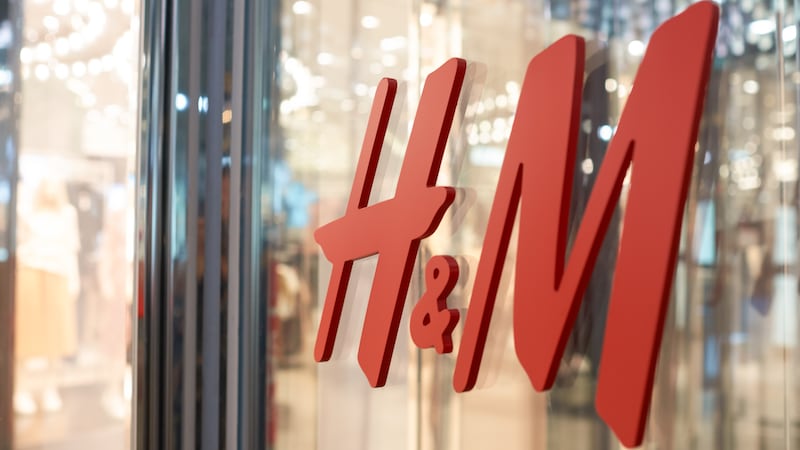
H&M is Slowly Recovering from China’s Xinjiang Boycott
H&M chief executive Helena Helmersson is “cautiously positive” about the Swedish fast-fashion company’s business in China, which last year was hit by a consumer boycott caused by a 2020 statement of concern regarding reports of forced labour in Xinjiang, a Chinese province where cotton is produced and used in textile supply chains. In August, after a 16-month hiatus, H&M reopened its store on Alibaba’s Tmall. Despite recent encouraging developments for the company in China, H&M has been affected by rising raw material costs and the closure of its operations in Russia, resulting in an 89 percent decline in third-quarter net profit. (Financial Times)
Shanghai Fashion Week Returns to Physical Format
After being postponed and eventually held as a digital-only event earlier this year, Shanghai Fashion Week returned to a physical format for its Spring/Summer 2023 edition, which took place between Sep. 22 and Sep. 30. The showcase, usually held in October, was brought forward to avoid any overlap with the 20th Communist Party Congress, which will begin on Oct. 16 in Beijing. The event included more than 60 physical shows and 12 trade shows, but lingering Covid-19 restrictions and uncertainties resulted in a subdued edition. Highlights included shows by well-known names such as 8on8, Xu Zhi, Shushu/Tong, Yirantian and Fengyi Tan, but other brands including Didu, Rui, Caroline Hu, Shuting Qiu, Susan Fang and Pronounce showed in Europe instead. The hashtag #ShanghaiFashionWeek reached 1.27 billion views on social media platform Douyin. (Jing Daily)
Shein Announces Plans to Reduce Emissions as Valuation Drops
Chinese fast-fashion company Shein has partnered with non-profit Apparel Impact Institute to reduce its supply chain emissions by 25 percent by 2030. The retailer has been criticised for its environmental impact, which in 2021 amounted to 6.3 million tons of carbon dioxide equivalent. Shein is expected to spend $7.6 million in energy efficiency programmes across more than 500 facilities, resulting in a reduction of 1.25 million tons in greenhouse gas emissions per year. The ultra-fast-fashion giant, which is particularly popular in Western markets and the Middle East, was valued at around $100 billion earlier this year, but a stake sale has reportedly prompted its value to drop to between $65 and 85 billion in private markets. Like other companies, Shein has been affected by investors’ efforts to liquidate capital, but it is also expected to suffer from a possible US recession, high inflation, weak consumer confidence and rising raw materials costs. (BoF, Financial Times)
Zegna, Valentino and Tag Heuer Tap Chinese Celebrity Ambassadors
Italian luxury brand Zegna has chosen 22-year-old Chinese actor Leo Wu as its new brand ambassador. Wu, who made his first appearance in commercials as a toddler, is starring in a campaign for the brand’s latest Oasi Cashmere collection. Despite the ongoing government crackdown on the entertainment industry over celebrities’ perceived morality, ethics and loyalty to the Communist party, which has resulted in former Prada brand ambassador Zheng Shuang and actor Deng Lun being fined for tax evasion and others being caught up in various controversies, international brands continue to ink new partnerships with Chinese stars. In September, Swiss performance brand On Running appointed triathlete Miao Hao as its first Chinese athlete, while earlier last month Valentino and Tag Heuer tapped singers Li Ronghao and Cai Xukun, respectively. (Press releases)
消费与零售
CONSUMER & RETAIL
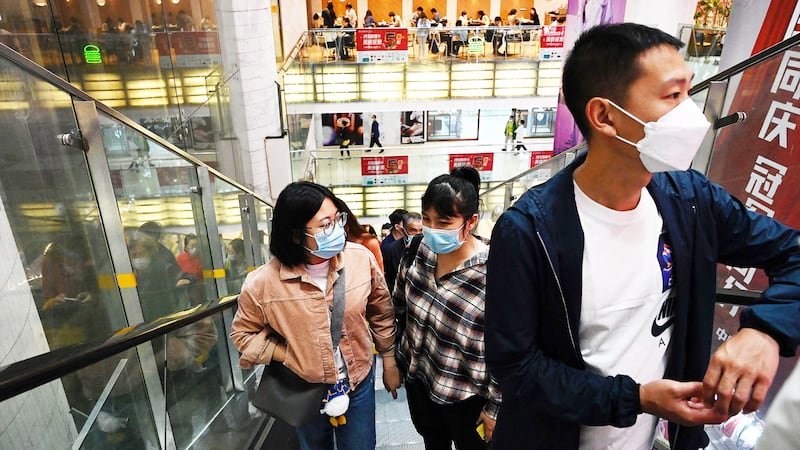
China’s Zero-Covid Policy Disrupts Golden Week
China’s stringent Covid-19 policies led to a sharp decline in travel and spending during Golden Week, one of China’s longest public holidays and a bellwether for consumer spending in the country. Tourism revenue between Oct. 1 and Oct. 7 declined 26 percent to 287 billion yuan ($40.3 billion) over a year ago and 56 percent over pre-pandemic levels, according to the Ministry of Culture and Tourism. Citizens took only 422 million trips, down 18 percent from 2021. In many cases, those who decided to travel encountered flight cancellations, forced hotel quarantines and additional hurdles, such as PCR tests to enter public areas and board trains and planes. Tourists were stranded in Xishuangbanna, in the southwest province of Yunnan, while mass testing was ordered in Hainan, a popular tourist destination in the South China Sea, after two cases were detected. (Bloomberg , New York Times)
Hong Kong Offers 500,000 Free Tickets to Win Tourists Back
The Airport Authority Hong Kong confirmed that the city will give away 500,000 free tickets to international tourists, business travellers and residents in a move to attract visitors and revitalise the economy, which has been battered by political instability and two and a half years of strict Covid-19 measures. The tickets were purchased by Airport Authority Hong Kong in 2020 for around $254.8 million to support the aviation industry. The scheme will start in 2023 with more details to be announced, but industry leaders are calling for the programme to start earlier, to take advantage of the Western holiday period at the end of the year, and be accompanied by spending packages to support retail and hospitality. Once a favourite travel destination with 56 million visitors per year, since 2020 Hong Kong has seen arrivals fall to record lows as non-residents were required to hotel quarantine for 21 days at their own expense. Quarantine rules were scrapped on Sept. 26, but visitors still face self-monitoring and tests. (CNN, SCMP)
Luxury Brands Take on Shanghai Hongqiao International Airport
Luxury brands are doubling down on their travel retail outposts in China with a series of openings at Shanghai Hongqiao International Airport. On Oct. 1, LVMH-owned Tiffany & Co. opened a boutique in the airport’s domestic terminal’s Luxury Brand Boulevard. Loewe, Dior, Loro Piana, Bottega Veneta and Max Mara are expected to follow suit, while Celine opened a store in August. Located in Terminal 2 since 2011, the 360-metre-long Luxury Brand Boulevard already includes around 20 luxury names such as Louis Vuitton, Hermès and Gucci, with most of the stores being directly operated by brands. Hongqiao Airport is planning to expand the Boulevard and its portfolio with categories such as jewellery, watches and fragrance. (Moodie Davitt Report)
Chinese Male Luxury Consumers Shun Second-hand and NFTs
According to a new report by Jonathan Travers-Smith, CEO of marketing agency Hot Pot China, and forecasting agency the Future Laboratory, Chinese male luxury consumers’ purchases are still primarily motivated by the expression of personal status. These shoppers, who represent 44 percent of total luxury spend in the country, favour recognisable brands and value brand heritage, craftsmanship and the application of new technologies when they bring concrete benefits to their shopping experience, like personalisation, bespoke services and optimised consumer service. A considerable interest around NFTs and luxury has not developed into a concrete desire to buy, while the second-hand market’s appeal remains low, with only 2 percent of interviewees saying they have purchased second-hand luxury goods. The report conducted qualitative and quantitative research on 530 male luxury consumers across China. (The Chinese Male Luxury Consumer 2023)
科技与供应链
TECH & SUPPLY CHAIN
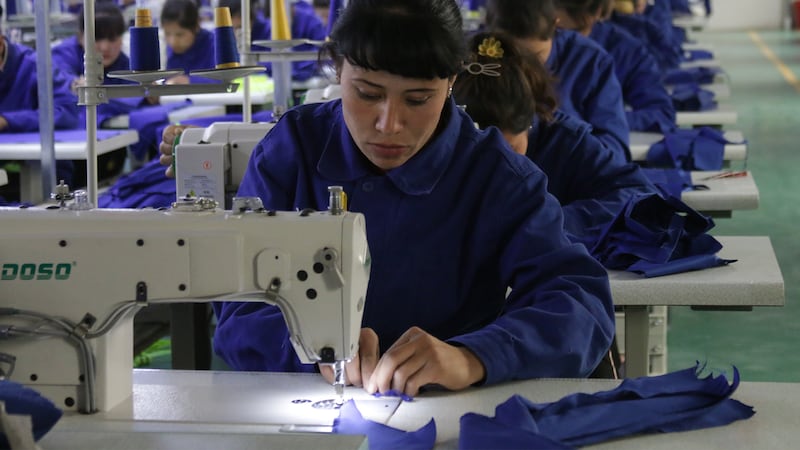
Conflicting Reports Over China’s Manufacturing Output
According to China’s National Bureau of Statistics, in September the country’s factory activity expanded, with the Purchasing Managers’ Index (PMI) surpassing the 50-point mark that separates contraction from growth. The official PMI grew to 50.1 compared to 49.4 in August, but government data was contradicted by a private survey of factory activity by Caixin Media and S&P Global. The jointly released Caixin/Markit PMI fell to 48.1 in September from 49.5 in August, the lowest reading since May. (Reuters)
India Increases Import of Chinese Cotton as Prices Fall
India is importing as much as five times more Chinese cotton yarn following the dramatic drop in prices caused by the US ban on cotton and cotton products produced in China’s Xinjiang province that went into effect in June, when Chinese cotton prices fell 24 percent. Market sources estimate that, despite custom duty and taxes, Chinese cotton remains 20 percent cheaper than India’s domestic yarn, making it an appealing alternative. Between January and July of this year India imported 466,623 kg of Chinese cotton yarn, surpassing the total quantity imported for the whole of 2021, but traders indicated they are confident that the government won’t allow cheaper Chinese cotton to flood the market. (Fibre2Fashion)
政治,经济与社会
POLITICS, ECONOMY, SOCIETY
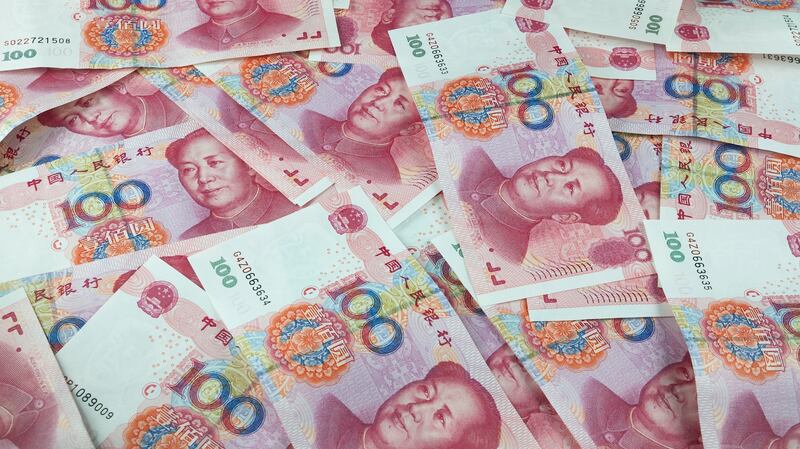
World Bank and ADB Slash China’s 2022 Economic Growth Outlook
The World Bank has cut China’s GDP growth forecast for 2022 to 2.8 percent from an earlier 5 percent, marking a dramatic drop from the 8.1 percent increase registered in 2021. Growth in the rest of East Asia and the Pacific region (excluding China) is expected to accelerate to 5.3 percent in 2022, from 2.6 percent in 2021, meaning that China’s economic output will fall behind the rest of Asia for the first time in 30 years. According to the international financial institution, the government’s strict ‘zero-Covid’ policies have caused the Chinese economy to lose momentum. The Asian Development Bank (ADB) also slashed its forecast for China’s growth from 5 percent in April to 3.3 percent. Both institutions expect China’s GDP to grow 4.5 percent in 2023. (The Guardian)
China’s Central Bank Warns Traders Against Speculation as Currency Falls
Liu Guoqiang, vice governor of the People’s Bank of China, warned traders against betting on “the appreciation or depreciation of the renminbi exchange rate,” after the currency dropped to 7.2 against the dollar, its weakest point since the 2008 financial crisis. The governor’s message is part of a series of measures targeted at slowing the pace of the Chinese yuan depreciation, including reducing the amount of foreign currency banks need to hold and asking state-owned banks to sell dollars and buy yuan. (CNBC, Yahoo Finance)
Local Governments Launch Discount Schemes as Property Sector Languishes
Since June, more than 20 Chinese cities including Shenyang, Nanning and Wuzhou, have started offering group buying programmes on unsold properties at discounts of up to 30 percent as local governments try to revive the struggling real estate sector. China’s property crisis, which has seen falling house prices, developers defaulting on debts and owners boycotting mortgages on unfinished properties, poses serious threats to the country’s economy and financial stability. The squeeze on developer’s incomes has led to a sharp decrease in land sales, which represent up to 40 percent of local government’s annual revenues. That increases the likelihood of defaults by local government financing vehicles (LGFVs), whose debt, around $7.8 trillion in 2021, equals nearly half of China’s total GDP. (The Paper , Financial Times)
JD.com Founder Richard Liu Settles US Rape Case
Chinese e-commerce mogul Richard Liu and Liu Jingyao, a former University of Minnesota student, have reached a settlement for an undisclosed amount after a prolonged legal battle that started in 2019, when Liu filed a civil suit in a Minnesota court accusing JD.com’s founder of rape. The case was closely followed in China, where sexual harassment and rape are rarely discussed in public, and the settlement was viewed as a win for the #MeToo movement in the country, even though Richard Liu did not admit any wrongdoing. Liu Jingyao accused Richard Liu of raping her in her apartment in 2018, after a business dinner where she says he pressured her to drink alcohol, but prosecutors declined to press charges for insufficient evidence, leading Liu to file a civil suit. (New York Times)
China Decoded wants to hear from you. Send tips, suggestions, complaints and compliments to robb.young@businessoffashion.com.
With consumers tightening their belts in China, the battle between global fast fashion brands and local high street giants has intensified.
Investors are bracing for a steep slowdown in luxury sales when luxury companies report their first quarter results, reflecting lacklustre Chinese demand.
The French beauty giant’s two latest deals are part of a wider M&A push by global players to capture a larger slice of the China market, targeting buzzy high-end brands that offer products with distinctive Chinese elements.
Post-Covid spend by US tourists in Europe has surged past 2019 levels. Chinese travellers, by contrast, have largely favoured domestic and regional destinations like Hong Kong, Singapore and Japan.